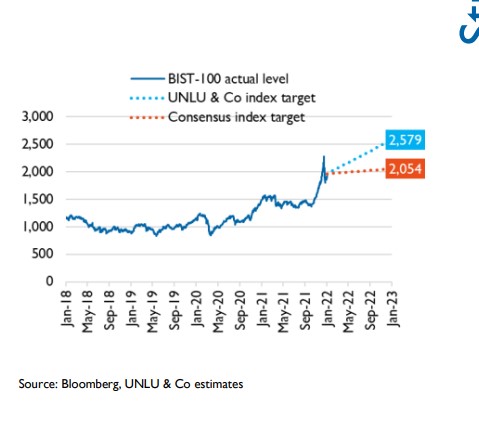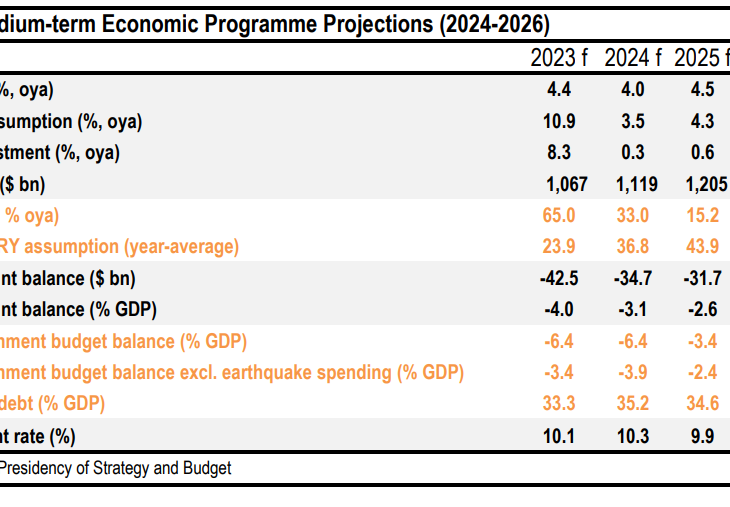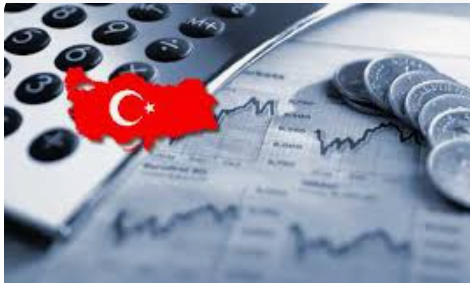Turkish markets this morning: Gloom in stocks, gloom in the economy
 sabah rapor3
sabah rapor3
On the agenda of Turkish investors is Borsa Istanbul, which has been in free fall lately. As the index declines for the seventh day in a row, testing the bottom of the last six months, we hear that investors leaving the stock market are rushing towards gold. Although the missiles passing before our eyes play a big part in the sales pressure that has reached 12% in the last eight days and is described as quite harsh (Iranian missiles were also seen from the TRNC), the dominant trend on the Borsa Istanbul front is in an environment where the Israeli stock market has fallen by 3%. We are at a loss to explain such sales pressure with geopolitical developments alone.
[embed]https://www.youtube.com/watch?v=gL2FGaNZ3j4&t=223s[/embed]
In this context, as we mentioned in our newsletter yesterday, we conclude that in addition to the geopolitical developments, the 'scream' coming from the real sector in the background is also a factor. Turkey's PMI index, which was announced on 1st of October and is the leading indicator of growth, has reached its lowest level since the pandemic. İ.e. the wheels in the industry have come to a halt, and the antibiotic treatment applied by the CBRT, which has been trying to treat the damage caused by low interest rates with tight monetary policy for a long time, may cause severe side effects. In order for the stock market to attract bids again, it is not enough for it to be cheap, but new liquidity also needs to be flowing to the pool that is constantly leaking water. In this context, we think that Central Bank (CBRT) reopening of swap channels, allowing foreigners to access TL easily may ignite the stock market.
Yesterday we closely followed the inflation figures announced by Turkstat in the morning. In line with the leading information indicated by the Istanbul inflation measure, official inflation soared to 2.97% MoM, above the expectation of 2.2%, while annual inflation decreased to 49.38% due to the base effect. Although annual inflation has fallen below the CBRT's policy rate of 50%, we must clearly face the fact that inflation is stubbornly resistant.
When we look at the sub-items of inflation, we need to note that five of the twelve sub-groups, including health, alcoholic beverages and tobacco, restaurants and hotels, education and housing, increased above the headline CPI (49.38%). This year, I have personally experienced how education expenses hurt, especially because of my daughter who is preparing for university! The fact that the domestic PPI increased by 33.09% on an annual basis and remained significantly below the headline CPI shows that demand-side inflation is dominant.
We still think that the CBRT will hear the screams of the real sector and choose for a measured cut in the interest rate in the last month of the year, but this will not be easy to communicate.
We need to underline that the CBRT's job has become quite difficult. On the other hand, the fact that inflation did not decline in the desired direction supported the belief that interest rates should perhaps remain higher for a while, thus relieving the upward pressure on the exchange rate, albeit with baby steps. While the USDTRY exchange rate decreased to 34.15 levels, TL also gained value on a basket basis with the sharp decline in EUR and GBP in parallel with the demand for the safe haven dollar abroad. The GBPTRY exchange rate, which is the barometer of the TRNC people, rose to 45.70 last week and then dropped to 44.50 yesterday.
Yesterday, we examined the weekly bulletins of the CBRT and BRSA in detail, as we do every Thursday. In this regard, according to BRSA data, in the week ending September 27, foreign currency deposits decreased by 1.1 billion dollars to 197.9 billion dollars, while according to CBRT data, FX deposits of domestic investors increased by 0.8 billion dollars, while legal customers' FX deposits decreased by 0.9 billion dollars.
While KKM's TL balance decreased by 22.2 billion TL, the share of TL deposits in the total deposit pool reached 54%, the share of foreign currency deposits reached 37% and KKM reached 8%. According to CBRT data, while foreigners bought $0.2 billion in shares last week, they sold $0.4 billion in government bonds after a long break.
By Emre Degirmencioglu of Cyprus Economy Bank





